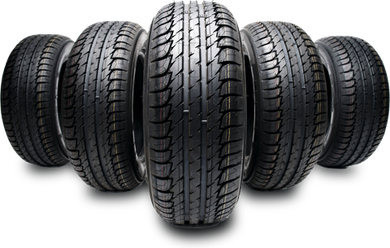Discover Top-Quality Tires Morris IL: Pick the most effective for Your Lorry
Discover Top-Quality Tires Morris IL: Pick the most effective for Your Lorry
Blog Article
Tire Solution: Comprehending Tire Pressure Tracking Solutions
Comprehending Tire Pressure Monitoring Systems (TPMS) is a critical element of keeping optimum car efficiency and safety on the road. With innovations in automobile modern technology, TPMS has come to be a conventional attribute in modern automobiles, providing real-time details on tire pressure degrees.

Significance of TPMS
The importance of Tire Stress Tracking Solutions (TPMS) hinges on their capability to boost vehicle security and efficiency via real-time monitoring of tire pressure levels. Preserving the proper tire pressure is critical for guaranteeing ideal handling, stopping, and overall safety and security of a car. TPMS supplies drivers with instant feedback on any overinflated or underinflated tires, enabling prompt adjustments to be made.
Parts of TPMS
Sensors are usually situated in the tire valve stem or affixed to the wheel setting up, where they measure tire stress and transfer information to the control component. Some progressed TPMS models likewise present the actual tire stress analyses for each tire, providing chauffeurs with real-time info to make certain ideal tire efficiency and safety. By monitoring tire pressure continually, TPMS assists stop accidents, minimizes tire wear, and improves gas efficiency, making it an important component for car security and performance. morris tire and alignment.
Sorts Of TPMS

On the other hand, indirect TPMS counts on the lorry's wheel rate sensing units to keep track of tire pressure. This system finds underinflation by contrasting the rotational rates of the wheels. Indirect TPMS is less expensive than straight TPMS, as it makes use of existing sensing units within the vehicle.
While straight TPMS uses a lot more exact analyses, indirect TPMS is simpler in design and generally needs much less maintenance. Both systems have their benefits and limitations, and the choice between them often depends upon variables such as cost, car make, and personal preference. Recognizing the differences between these 2 sorts of TPMS can assist lorry owners make informed decisions pertaining to tire maintenance and security.
TPMS Upkeep Tips
Reliable maintenance of TPMS is crucial for making sure optimum performance and safety and security of your vehicle. Consistently examining the TPMS sensing units for any type of damages or corrosion is vital. Ensure that the sensing units her explanation are tidy and totally free from particles that might hinder their performance. In addition, it is advisable to examine the sensor batteries occasionally and change them as required to assure accurate analyses. Conduct routine look at the tire stress levels and contrast them with the TPMS readings to ensure they are regular. If there are any kind of discrepancies, alter the system following the producer's guidelines. Additionally, during tire rotation or substitute, see to it that the TPMS elements are managed very carefully to protect redirected here against any prospective damage. Lastly, if the TPMS cautioning light brightens on the control panel, resolve the issue quickly by inspecting the tire stress and the overall system for any mistakes. By adhering to these maintenance pointers, you can extend the lifespan of your TPMS and boost the safety and security of your driving experience.
Advantages of Proper Tire Pressure
Keeping proper tire pressure, as stressed in TPMS Upkeep Tips, is essential for reaping the countless advantages connected with ideal tire pressure levels. Furthermore, appropriate tire stress ensures even tire wear, prolonging the life expectancy of the tires and promoting much safer driving problems. In verdict, the advantages of appropriate tire stress go past simply tire long life; they incorporate improved fuel performance, boosted security, much better car performance, and total driving convenience.
Final Thought
Finally, recognizing tire stress surveillance systems (TPMS) is vital for original site preserving optimal tire stress and making certain automobile security. By acknowledging the significance of TPMS, knowing with its components, recognizing the different kinds readily available, sticking to correct upkeep ideas, and recognizing the benefits of preserving correct tire pressure, chauffeurs can enhance their driving experience and extend the life expectancy of their tires. Appropriate tire pressure is essential to safe and reliable lorry operation.

Report this page